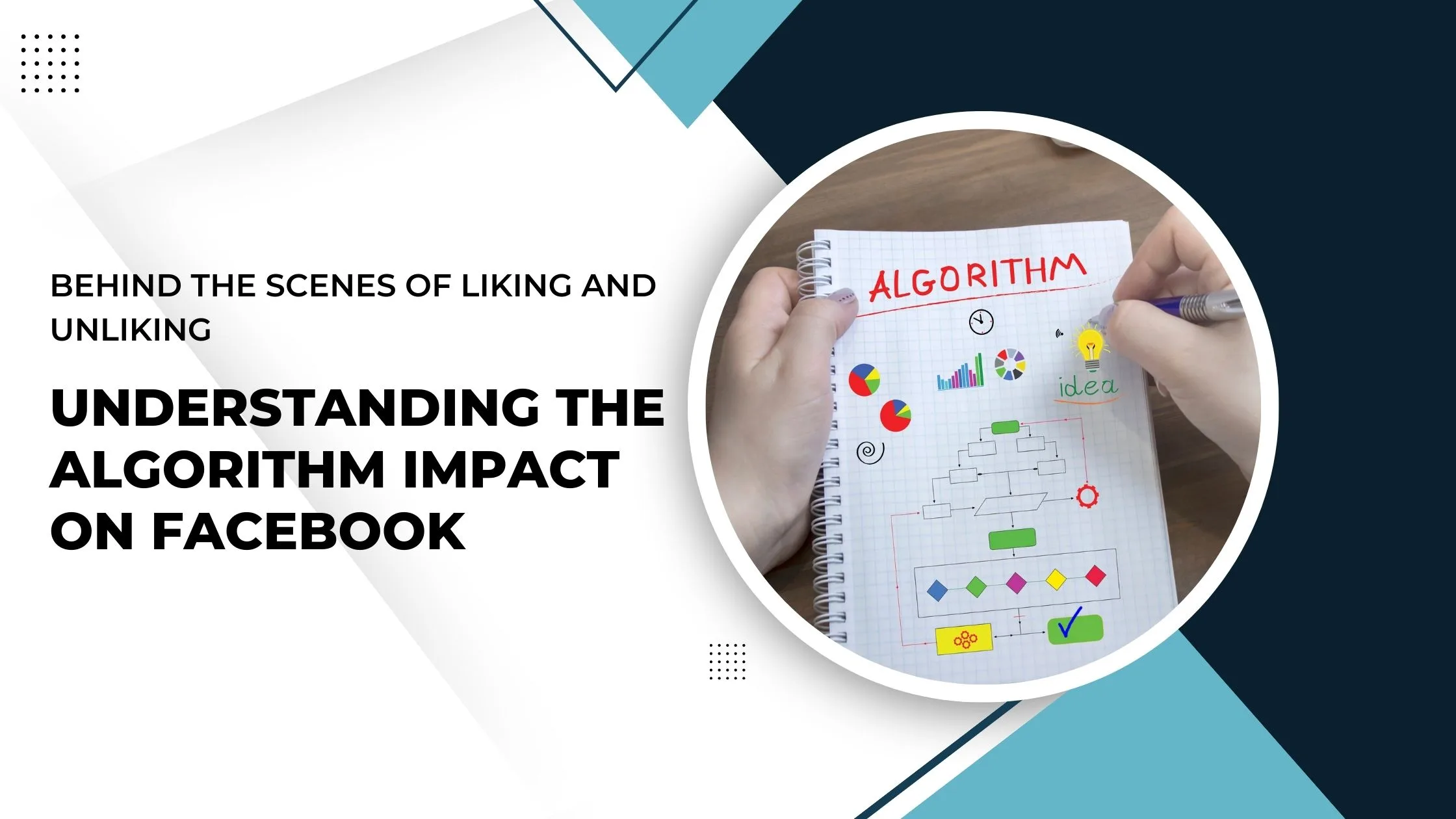Behind The Sciences of Liking And Unlinking : Understanding The Algorithm Impact on Facebook

Welcome to the fascinating world behind your Facebook feed! Have you ever wondered how that like button works? Or why posts seem to magically disappear from your timeline, leaving you wondering if they were just a figment of your imagination? Well, get ready to uncover the secrets behind the scenes of liking and unlinking as we delve into the mysterious algorithm that governs our favorite social media platform. In this blog post, we’ll take a deep dive into understanding the algorithm’s impact on Facebook and how it shapes our online experience. Get ready for an eye-opening journey through pixels and algorithms – let’s unlock the hidden code together!
INTRODUCTION TO THE ALGORITHM IMPACT ON FACEBOOK
When people think of algorithms, they often think of them as these super-complex equations that only a handful of people understand. But in reality, algorithms are just a set of rules or instructions that tell a computer what to do. And as it turns out, algorithms aren’t just for computers – they’re also for social media platforms like Facebook.
In fact, the algorithm is one of the most important factors in determining what content you see on Facebook. The algorithm is constantly running in the background, sorting through all the content that’s been shared on Facebook and deciding which pieces are most relevant to you.
So how exactly does the algorithm work? Well, that’s a bit of a mystery. Facebook keeps the details of its algorithm close to the chest, which means we can only make educated guesses about how it works. But based on what we do know, there are a few things that we can say for sure about how the algorithm impact on Facebook:
The algorithm is always changing: In order to keep up with the ever-changing world of social media, Facebook is constantly tweaking its algorithm. This means that what worked last month might not work this month – and vice versa.
The algorithm takes into account your past behavior: One of the things that the algorithm looks at is your past behavior on Facebook. If you’ve liked or commented on a lot of posts from a certain person or Page, then you ’re more likely to see more posts from them.
The algorithm prioritizes engagement: Engagement is one of the most important signals that Facebook looks at when deciding what content to show you. If a post is getting a lot of likes, comments, and shares then it’s more likely to appear in your News Feed.
In conclusion, the algorithm has a huge impact on what you see on Facebook. It plays a crucial role in determining what content is relevant to you – and it’s always changing. So if you want to ensure that your content reaches the right people, it’s important to keep up with the changes and understand how the algorithm works.

HOW DOES LIKING AND UNLIKING AFFECT YOUR NEWS FEED?
When you like or unlike a piece of content on Facebook, it affects your news feed in a few ways. First, it tells the algorithm that you’re interested in that type of content. If you like a lot of cat videos, for example, you’ll see more cat videos in your news feed. If you unlike a lot of political posts, you’ll see fewer political posts in your news feed.
Second, liking and unliking content affects the algorithm’s understanding of your interests. The more data the algorithm has on what you like and don’t like, the better it can customize your news feed to show you content you’re likely to engage with.
Liking and unliking content can also affect the visibility of that content in your news feed. If you like a post, it’s more likely to be shown to your friends; if you unlike a post, it’s less likely to be shown to your friends.
WHAT DATA DO COMPANIES GATHER WHEN YOU LIKE/UNLIKE A POST?
When you like or unlike a post on Facebook, the company records this data. They also take into account other factors, such as how long you spend looking at the post, whether you click on any links within the post, and whether you share the post with anyone. All of this information is used to help Facebook better understand what content is most important and interesting to you, so that they can show you more of that type of content in the future.
PRIVACY CONCERNS RELATED TO LIKING/UNLIKE A POST
When you like or unlike a post on Facebook, the algorithm takes into account a variety of factors. One of the most important factors is how many people have liked or unliked the post. If a lot of people like a post, it is more likely to be seen by others. If a lot of people Unlike a post, it is less likely to be seen by others.
Another important factor is how recently the post was made. Facebook favors new content and so posts that are liked or unliked more recently are more likely to be seen by others than those that were liked or unliked longer ago.
The final factor is engagement. If a post receives a lot of comments, likes, and shares, it is more likely to be seen by others than if it receives few or no engagement. This is because Facebook wants people to interact with each other on the platform and so favors posts that encourage interaction.
So, when you like or unlike a post on Facebook, you are affecting the visibility of that post for yourself and for other users. And, depending on how many people have liked or unliked the post and how much engagement it has received, your action could have a significant impact on whether or not people see that post in their News Feeds.
HOW CAN YOU PROTECT YOUR PRIVACY?
As we all know, Facebook is a giant database of information on its users. This social media platform knows more about us than we could ever imagine. And while this can be a good thing in some cases, it also raises some serious privacy concerns.
So, how can you protect your privacy on Facebook?
Here are a few tips:
1. Limit the amount of information you share on your profile. The less information you share, the less there is for Facebook (or anyone else) to collect.
2. Be aware of the privacy settings for each piece of content you post. Facebook gives you control over who can see each individual post or photo, so use this to your advantage.
3. Use the “log out” feature when you’re finished using Facebook for the day. This will help to prevent someone from accessing your account without your permission.
4. Keep an eye on the ads that are served up to you by Facebook. If you see an ad that is particularly targeted and intrusive, it’s likely that Facebook has collected some sensitive information about you. You can adjust your ad preferences in the settings menu to help mitigate this issue.
5. Be cautious about installing third-party applications on Facebook. These apps often have access to a lot of your personal data, so only install ones that you trust completely .
These are just a few ways you can protect your privacy on Facebook. Remember, it’s important to stay vigilant and aware of how much information you’re sharing online.
IS THERE AN OPTION TO OPT OUT FROM THE LIKE/UNLIKE FEATURE?
The Like/Unlike feature on Facebook is a controversial one. Some users feel that it is intrusive and privacy-invading, while others find it useful and convenient. Either way, there is currently no way to opt out of the feature.
When you like or unlike something on Facebook, the algorithm takes notice. It uses this information, along with other factors, to determine what content to show you in your News Feed. The more you use the Like/Unlike feature, the more personalized your News Feed will become.
Some users have complained that the Like/Unlike feature is a form of psychological manipulation. Facebook has denied these claims, saying that the feature is simply meant to make the user experience more efficient and enjoyable.
Whether or not you believe the controversy surrounding the Like/Unlike feature, there is currently no way to opt out of it. So if you don’t want your likes and unlikes to impact your News Feed, you’ll just have to be more selective about what you click on.
CONCLUSION
It is important for users to understand the algorithm impact on Facebook when it comes to liking and unliking. This knowledge can help individuals make informed decisions when interacting with their content. By recognizing how algorithms work, users can optimize their posts to reach more people, engage more effectively with other’s content and have a better experience navigating through the platform as a whole. With this information in mind, you will be able to get the most out of your Facebook experience!
Comments
Post a Comment